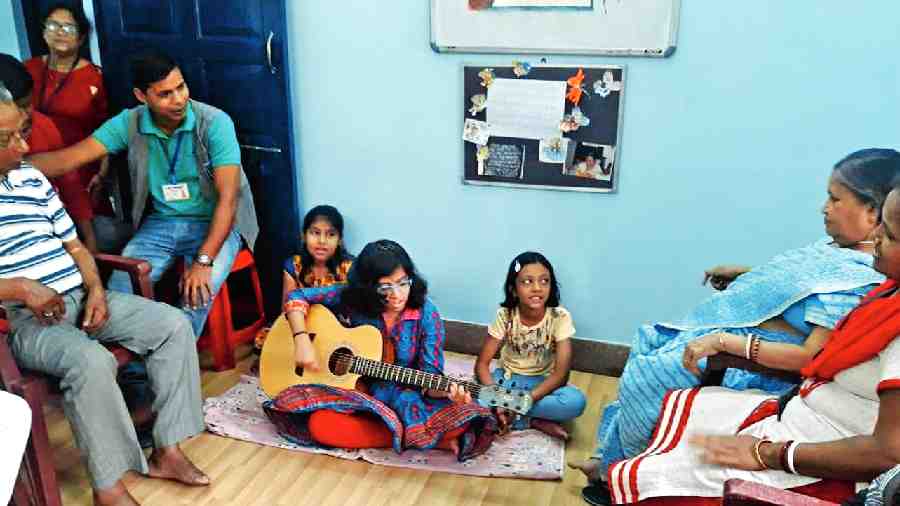Lack of understanding or awareness about dementia is widespread in society, even among those with access to information, leading to failure in recognising the pre-dementia stage, said doctors and those working to help people living with the condition.
Bringing in more youth to work as volunteers or for campaigns will help raise awareness in families and communities. Increased knowledge, they said, could help experts delay the onset of dementia, if it were to happen.
“Dementia is best managed when diagnosed at an early stage or the pre-dementia stage. There is a pressing need to raise awareness on the importance of recognising the pre-dementia stage and the need to manage the condition at that stage,” said Amitabha Ghosh, neurologist and president of the Alzheimer's and Related Disorders Society of India (ARDSI), Kolkata chapter.
“If recognised at the pre-dementia stage, it gives dementia specialists more time to delay the onset, sometimes by several years.”
The Kolkata chapter of ARDSI encourages youngsters to volunteer for the organisation, spend some time in caregiving, working out strategies or planning campaigns to spread awareness about dementia.
“There are college and school students who want to contribute and we engage them depending on their strengths,” said Nilanjana Maulik, secretary general of the Kolkata chapter and vice chair of the organisation at the national level.
“Organisations have limited resources and despite wanting to reach out, we are not always able to do so. But when the youth join us, they spread the word about the condition. They can help guide people, not necessarily in their families but in society at large," said Maulik.
The organisation currently has a few students volunteering with them.
Maulik said that if the young people spend a week in their daycare centre, they understand they want to make “a difference”.
“For example those volunteering with us now are intensely planning to raise awareness about dementia,” said Maulik.
Anusha Mitra, 24, has taken a year off after completing her postgraduation and before pursuing further studies to volunteer for ARDSI.
“During our masters we had attended a webinar about dementia and that got me thinking. Unfortunately, while we were doing our masters we were in the middle of waves of Covid and had little exposure to anything practical. Our knowledge was only theoretical,” she said.
Forgetfulness is not essentially dementia, said neurologist Jayanta Roy.
“In dementia there could be other cognitive functions of the brain that can get impacted,” he said.
Roy explained that there were instances of people having difficulty in forming their language, planning, execution or reasoning. There could also be changes in personality, he said.
“Many people are aware of the word ‘dementia’ but lack an understanding of what it is and what it leads to. Often caregivers or family members get annoyed with them (people living with dementia). Also, in a city like Kolkata, where children live outside the city or the country, many old people living with dementia are left to themselves,” he said.
